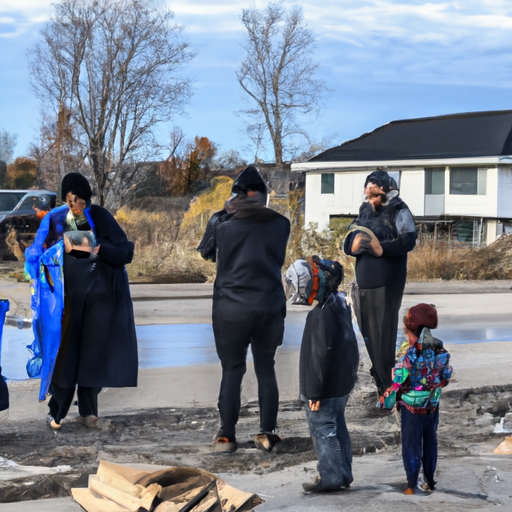Fort William First Nation Receives Assistance Amid Ongoing Opioid Crisis
As the opioid crisis persists in Canada, various regions and communities are continuing their brave fight against its devastating effects. Notably, the Fort William First Nation, an indigenous reserve in Ontario, has declared a state of emergency due to the escalating crisis.
Opioid Crisis’ Impact on Fort William First Nation
The opioid crisis, chiefly characterized by the misuse of, and addiction to, opioids, is undoubtedly one of the most significant public health issues in contemporary Canada. It has posed a tremendous and tragic challenge to the Fort William First Nation in particular.
The community is grappling with a stark increase in drug-related crime. There’s also been a rise in the number of individuals experiencing homelessness, presumably as a noteworthy consequence of the opioid crisis. Additionally, opioid overdoses have become alarmingly common, fueling a heightened sense of urgency within the community.
Support and Assistance Received by the Community
In response to the declared emergency, the community has received help in various forms. Importantly, this includes action on the possibility of launching an opioid class action against pharmaceutical companies that are considered to have significantly and detrimentally contributed to the crisis.
Bullet Point Summary of Key Points:
- The Fort William First Nation has declared a state of emergency in response to the escalating opioid crisis.
- The crisis has given rise to increased drug-related crime and homelessness within the community.
- Overdoses have become an alarmingly common sight in the area.
- The community is receiving aid in various forms, including legal assistance for a potential opioid class action.
Efforts to Combat the Effects of the Opioid Crisis
The Fort William community has launched a multifaceted response to combat the overwhelming effects of the opioid crisis. Not just stopping at seeking legal help, they are also putting in place tangible strategies to mitigate the impact of opioids on their community. Running opioid awareness campaigns, distributing naloxone kits to counter overdoses, and installing security cameras at overdose hotspots may aid in reducing the devastating footprints of the crisis.
Moreover, the community is also working with the Canadian Red Cross in setting up emergency support services. This collaboration aims to provide fundamental support and care for affected individuals and families, marking it a crucial step towards overcoming the crisis.
Conclusion
The opioid crisis is touching many communities across the globe, and Fort William First Nation is one such community tirelessly combating its devastating implications. Their declaration of an emergency is an indication of the profound strains the crisis can impose on communities, highlighting the need for more prompt and effective responses. The community’s actions to seek help and implement strategies to fight this crisis is commendable and could serve as a valuable lesson for other regions battling similar situations.
By mirroring these strategies, other communities might be able to reduce drug-related crime, manage homelessness, and control opioid overdoses more effectively. The fight against the opioid crisis is ongoing, and it is important to keep supporting communities like Fort William First Nation in their effort to overcome the devastating effects of opioids on their communities.


